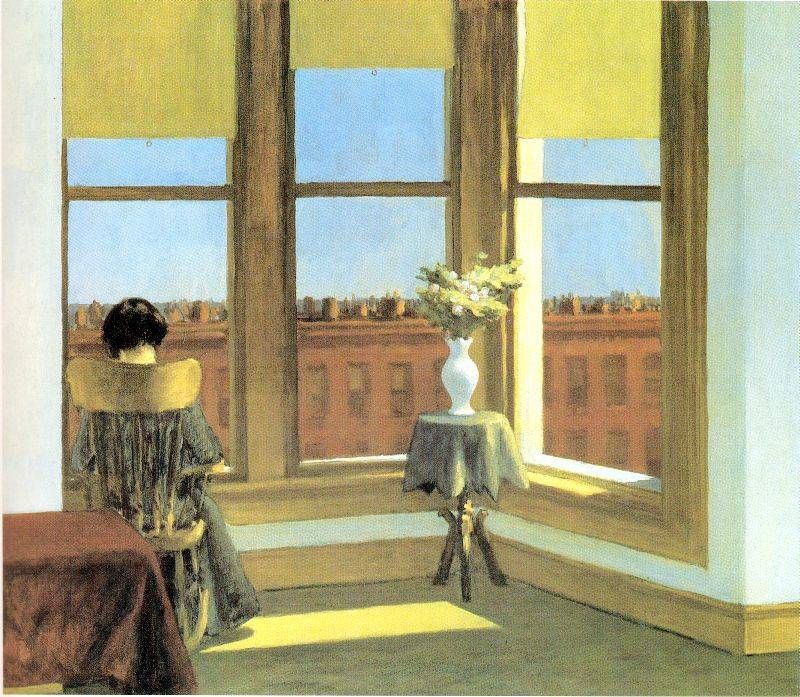Going back at least to this description in The Illiad of the shield of Achilles, poets have been writing about art. The practice, called ekphrasis (here’s a short history), is perhaps appealing because it gives writers and readers a tangible physical starting place, a kind of shortcut from the usual challenge of translating a wholly new idea to or from the page. In a recent NYT Magazine profile, Anne Carson describes this challenge as “the struggle to drag a thought over from the mush of the unconscious into some kind of grammar, syntax, human sense; every attempt means starting over with language.”
I’ve been working back through some of Carson’s earlier books, including Men in the Off Hours, which among very many things features a suite of nine poems about eight Edward Hopper paintings juxtaposed with quotes from Saint Augustine’s writings about time. These poems, “Hopper: Confessions,” compare time—the way it defines and gives shape to our lives—to a light entering the rooms and spaces around us. One of my favorites in the suite is “Room in Brooklyn.” Another look at the corresponding painting gets to my first takeaway from this reading experience: reading these poems while clicking through images of the Hopper paintings is a fairly awesome twenty minutes for the imagination! A second takeaway (and here is where things get a little hazy in “the mush of [my] unconscious”): re-conceptualizing time as a kind of light flashing in through the windows of experience comes with a nudge toward an idea difficult to hold long, an idea of life as something more than the moment-to-moment through which we navigate—through which we swim might be a better way to conceive of moving through the weight of lived time and the shadows of every past or passing moment—an idea of a kind of being that transcends the measures of time. For another take on “Hopper: Confessions,” checkout this Berlin performance that mixes cello and synthesizer (I think) with a video collage of lines from the poem and images from the Hopper painting. If you make it through, listen for the weight and tremor of each slow-strung note and the eventual crescendo of time feeding back on itself.
What about you? Any all-time favorite poems or writing about works of art?
